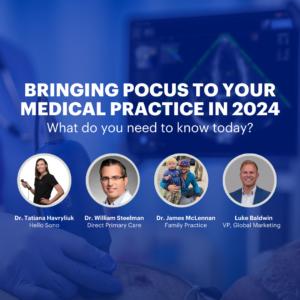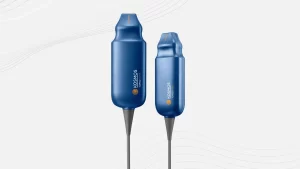Dr. José Mariz

MD, PhD
Embracing Point-of-Care Ultrasound: A Paradigm Shift in Clinical Practice
Dr. José Mariz, MD, PhD, an advocate for adopting point-of-care ultrasound (POCUS) in diagnostics and patient care, recently sat down with EchoNous VP of Global Marketing Luke Baldwin, for an insightful conversation about the changing landscape of POCUS.
Meet Dr. José Mariz
Dr. José Mariz, a distinguished General Internist physician and Head of the Emergency Medical team at Hospital de Braga, leads Portugal’s innovative POCUSX project, and a groundbreaking three-month ultrasound fellowship program in the Hospital de Braga. This initiative is the first of its kind in Portugal and is changing ultrasound education in the country.
Shifting Paradigms: Ultrasound's Clinical Role and Educational Challenges
Could Point-of-Care Ultrasound (POCUS) devices revolutionize patient care? Dr. Mariz believes so.
As the healthcare landscape evolves rapidly, he is leading a significant shift towards widespread adoption of POCUS. Advocating for a change in clinical practice, Dr. Mariz challenges the common misconception that ultrasound is solely a radiological technique. “We think that ultrasound is radiology…the specialty, and it’s not. It’s totally different,” Dr. Mariz said.
Instead, Dr. Mariz emphasizes the role of ultrasound beyond imaging. “It’s not just about imaging, it’s about clinical care,” he noted. As the ongoing “turf wars” between radiology and ultrasound are settling, he believes more providers can incorporate ultrasound at the bedside and point of care.
For example, Dr. Mariz draws attention to recent evidence from Spain, where the introduction of a point-of-care ultrasound program in the health system increased the number of radiology exams.
“There is evidence that in the south of Spain, they implemented a POCUS program in the healthcare system which led to an increase in the number of ultrasound exams ordered. The relationship between primary care doctors and radiologists improved because [doctors] learned to ask more focused questions. This is crucial from a probabilistic standpoint, as performing exams with a clear clinical question may yield relevant findings. First, it is essential to consider why the exam is necessary.”
Still, despite these improvements, teaching POCUS presents challenges. As Dr. Mariz noted, “We have to teach clinical aspects of the physical exam and clinical reasoning, and we have to integrate that with the rest of medicine.” He emphasizes advocating for a comprehensive educational approach that integrates ultrasound principles with broader medical practices to help overcome these challenges.
As an internist, Dr. Mariz brings a practitioner’s perspective to the discussion, believing that the integration of POCUS into his practice is a natural progression. However, he acknowledges the challenges faced by other specialists.
Arguing that the biggest challenge of incorporating POCUS into everyday practice is “integrating it as the fifth pillar of the physical exam,” Dr. Mariz sees parallels with the stethoscope.
“For the past 200 years, we’ve relied on the stethoscope, deeming it the pinnacle of physical exams. However, it’s an evolutionary journey [that alters] our perspective on patient assessments. Ultrasound, much like developments before it, is revolutionizing the physical exam.”
Despite the proven benefits of POCUS, resistance persists within medical specialties, a phenomenon Dr. Mariz finds present even within his domain. “It’s interesting to see why there is so much resistance, even from colleagues in my specialty,” he said. In his view, overcoming this resistance requires collaborative efforts within the medical community to embrace the full potential of POCUS.
Yet change can be slow, and Dr. Mariz questions the disparate access to ultrasound across medical specialties, highlighting the example of obstetrics, where ultrasound has been a standard for 50 years. He challenges the medical community, asking, “How could it be possible for an internist not to take the lens when they have the opportunity?”
Dr. Mariz’s pragmatic approach and dedication to hands-on teaching underscore the practical benefits of POCUS in everyday clinical practice. As the medical community grapples with the challenges of integrating POCUS into their workflow, Dr. Mariz serves as a guide toward a more patient-centric and comprehensive approach to diagnostics and care.
Stay tuned for our in-depth Q&A article, where Dr. Mariz shares insights into redefining patient care through the lens of POCUS.



